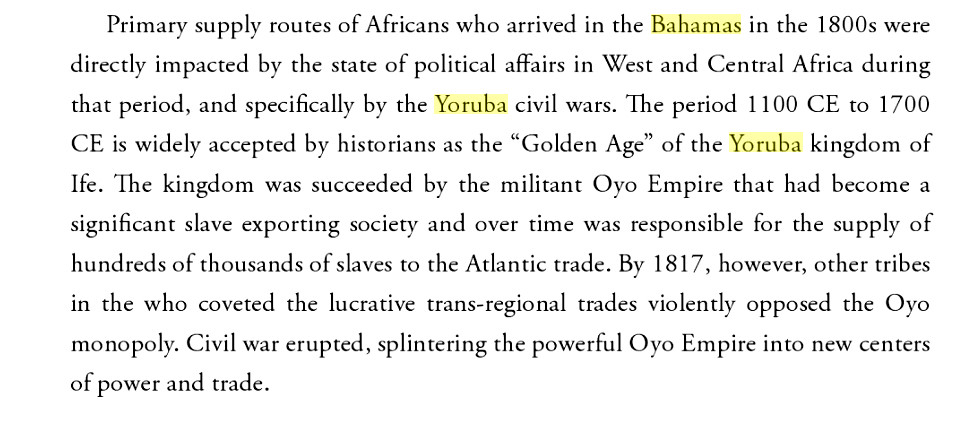Slaves from The Bight of Benin Vs The Bight of Biafra- Numbers & Cultural Legacy - Culture (6) - Nairaland
Nairaland Forum / Nairaland / General / Culture / Slaves from The Bight of Benin Vs The Bight of Biafra- Numbers & Cultural Legacy (42455 Views)
Are Yoruba Changing Bight Of Benin To Bight Of Oyo? Or Was It Truly Bight Of Oyo / How The bight Of Benin Was Named After The Benin Empire / Comparing Slave Numbers from Bight of Benin and Bight of Biafra from 1400 - 1865 (2) (3) (4)
(1) (2) (3) (4) (5) (6) (7) (8) (9) (Reply) (Go Down)
| Re: Slaves from The Bight of Benin Vs The Bight of Biafra- Numbers & Cultural Legacy by bigfrancis21: 8:16am On Jan 25, 2017 |
Trinidad Slave Census of 1813 SUMMARY Number of slaves 25,696 Creole (i.e born in the West Indies) 11,633 (45% of total) African 13,984 (54% of total) African specified ethnically/regionally 13,391 (52% of total) BREAKDOWN OF AFRICAN BORN SLAVES Ibo (Nigeria) 2,861 – 21% of African specified Congo (Congo) 2,449 – 18% of African specified Moco (Nigeria/Cameroon) 2,234 – 17% of African specified [img]https://tracingafricanroots.files./2015/01/origins-of-african-born-slaves-trinidad-18131.jpg?w=869[/img] [img]https://tracingafricanroots.files./2015/01/paul-lovejoy-ethnic-origins-of-slaves-1813-part11.jpg[/img] [img]https://tracingafricanroots.files./2015/01/paul-lovejoy-ethnic-origins-of-slaves-1813-part21.jpg[/img] |
| Re: Slaves from The Bight of Benin Vs The Bight of Biafra- Numbers & Cultural Legacy by bigfrancis21: 8:20am On Jan 25, 2017 |
| Re: Slaves from The Bight of Benin Vs The Bight of Biafra- Numbers & Cultural Legacy by bigfrancis21: 8:37am On Jan 25, 2017 |
Liberated Africans in Cuba One of the most unique component of the Registers of Liberated Africans from the Havana Slave Trade Commission is the nación column. This detail refers to a series of colonial terms which referred to past perceptions of West African "nations." In these sources, there were 7 broad nation categories used, including: Mandinga, Gangá, Mina, Arará, Lucumí, Carabali and Congo. The meanings of these terms are highly debatable, especially since people from West Africa did not necessarily use them to identify themselves. Click here to view Jean Palairet's 1794 map of West Africa. This particular map was selected because it illustrates the imagined loacations for many African nación and their respective sub-groups found in Cuba. To complicate matters, there were 241 different nación sub-groups, which are listed below and distributed accordingly: Mandinga (18 sub-groups), Gangá (12), Mina (2), Arará (3), Lucumí (29), Carabali (51) and Congo (129). These ethnonyms clearly specified more distinct African ethnolinguistic groups, places or regions in a variety of ways and spellings. However, these terms are also highly debatable in terms of their origins and meanings. In addition, nación sub-groups were not always used. It should also be noted that there were three additional "ethnonyms" which did not fall into one of the 7 broad categories. They were "de Bisao," "Arpongo" and "Sierra Leona," which almost certainly referred to Bissau, Rio Pongo and Sierra Leone.  -----------------------------------------------------------------------------------------------------------------------------------------------------------------     ----------------------------------------------------------------------------------------------------------------------------------------------------------------- From the image above, it is interesting to observe how the Tapas (Nupes) were mislabelled lucumi in Cuba. Including the guaris (gwaris), and Igaras. Strong evidence again indicating that the numbers of actual lukumi descendants to be a smaller figure than the estimated 437,700 from Manning's research analysis. -----------------------------------------------------------------------------------------------------------------------------------------------------------------  It is interesting to see that liberated slaves from the carabali region constituted 2nd largest of the slave population, 'lukumi' being first and congo being third. Which confirms the statistics below confirming over 300,000 Bight of Biafra slaves exported to Brazil and Cuba, countries often affiliated with Bight of Benin. [img]https://tracingafricanroots.files./2015/06/lovejoy-et-al-table1-2-destinations-of-africans-from-the-bight-biafra.jpg[/img] http://www.liberatedafricans.org/hstc/d2_ethnicity.html |
| Re: Slaves from The Bight of Benin Vs The Bight of Biafra- Numbers & Cultural Legacy by Lushore1: 12:17pm On Jan 25, 2017 |
YourNemesis: Big up to you bro!, learning a lot from you. 'Yoruba House' dedicated as headquarters for Bain and Grants Town Advancement Association. IN what was described as a "red letter day" for Bain and Grants Town, a local community building association officially dedicated its headquarters. Named "Yoruba House" in recognition and celebration of the Yoruba people, the African tribe that first settled Bain and Grants Town, the headquarters of the Bain and Grants Town Advancement Association is located on Augusta Street north. In addition to the office of the Advancement Association, Yoruba House will also house the office of the Bain Grants Town Revitalisation Project, a museum, a library, and a lecture hall. Participating in the opening ceremonies were: opposition leader Perry Christie, MP Dr Bernard Nottage, Police Com ... 6 Likes 1 Share
|
| Re: Slaves from The Bight of Benin Vs The Bight of Biafra- Numbers & Cultural Legacy by YourNemesis: 3:52pm On Jan 25, 2017 |
bigfrancis21: You must b out of ya mind 4 Likes |
| Re: Slaves from The Bight of Benin Vs The Bight of Biafra- Numbers & Cultural Legacy by YonkijiSappo: 4:24pm On Jan 25, 2017 |
bigfrancis21: Sorry, but I am just curious to know if you really know what DNA testing entails? Have you ever seen a Genomic category anywhere , called "Eastern Nigerian" ? There is nothing like eastern nigeria DNA, lol. As categories, you can see things like Nigeria, Benin/Togo, Cameroon/Congo, Hunter gatherer, Senegambian OR West African, East African, Bantu, Khoi-San, Etc. But you won't see anything like Western Ghanaian, Eastern Cameroonian, Southern Senegalese etc. Igbos for example are usually a mix of three components, Nigeria, Benin Togo and Cameroon-Congo. In that order. Yorubas are also, Nigeria, Benin-Togo and Cameroon-Togo. The only difference between both groups is that Yorubas usually have slightly more Benin-Togo than Cameroon-Congo , while Igbos usually have more Cameroon-Congo than Benin-Togo. Both have the Nigerian component as a given. This isn't really surprising , especially if you look at the geographic location of both groups and correlate it with direction of ancient gene flow. Everybody is a mixture of different discrete regions. 6 Likes 1 Share |
| Re: Slaves from The Bight of Benin Vs The Bight of Biafra- Numbers & Cultural Legacy by HORRORIZON: 9:21pm On Jan 25, 2017 |
YourNemesis: As a share of the overall diaspora population in the Americas at large, Yoruba linage certainly dose hold a sizable share. Now when speaking specifically in regard to the African-American and Bahamian populations, it is a practically insignificant amount within these two populations. Igbo is the single most dominant bloodline of any one specific African ethnic group; making up the majority of the bloodline of upwards of possibly 60% of the AA population descended from the Chesapeake/Delaware Bay region alone. That's every state from Delaware down through Virginia, and even includes Southern PA and NJ as well most of the Northern part of North Carolina. There are books, cemeteries, towns and more in which express just how dominant the Igbo presence in the region was over all the other ethnic groups in this vast area. President James Madison's own father was believed to have been poisoned to death, by one of his female igbo house slaves, after he had sexually abused several of his young Igbo house girls. Over 80 percent of his slaves were of Igbo descent. You are mistaken to think that just because traditional Igbo customs aren't as prevalent withing the Black-North American populations than the Yoruba is within the South American populations, that the Igbo didn't care to preserve their traditions. The fact of the mater is that, the Igbo and Senegabians, due to their nature of defiance to having their liberties taken away.. were most often sent to the the Anglo colonies. The Anglo enslaving culture was extremely strict on "breaking" their slaves as soon as they arrived in port. They tortured them until they committed to eliminating any presence of their native ways, and replaced them with that of their in-slavers right down to their very names. They created laws and punishments that constantly reinforced this situation from one generation to next until the defiance in the slave population was nearly wiped out. This is the reason the AA and other Anglophone black population in the Americas have little sign of Igbo or any other African cultural aspects about them. 2 Likes |
| Re: Slaves from The Bight of Benin Vs The Bight of Biafra- Numbers & Cultural Legacy by scholes0(m): 10:58pm On Jan 25, 2017 |
HORRORIZON: Wrong. The Igbo lineage is the third most prevalent of about 5 or 6 African regions in the US. Not dominant like you say. You're right about the Bight of Biafra dominance in the chesapeake/Virginia area.  But for other regions of the US for example, the numbers are lesser. Carolinas and Georgia region. [img]http://tracingafricanroots.files./2015/05/4carolinasgeorgia2.gif?w=869[/img] And even lesser on the Gulf coast. 2 Likes |
| Re: Slaves from The Bight of Benin Vs The Bight of Biafra- Numbers & Cultural Legacy by scholes0(m): 11:27pm On Jan 25, 2017 |
This might shed some light on the Origin of Haiti's African descent population. 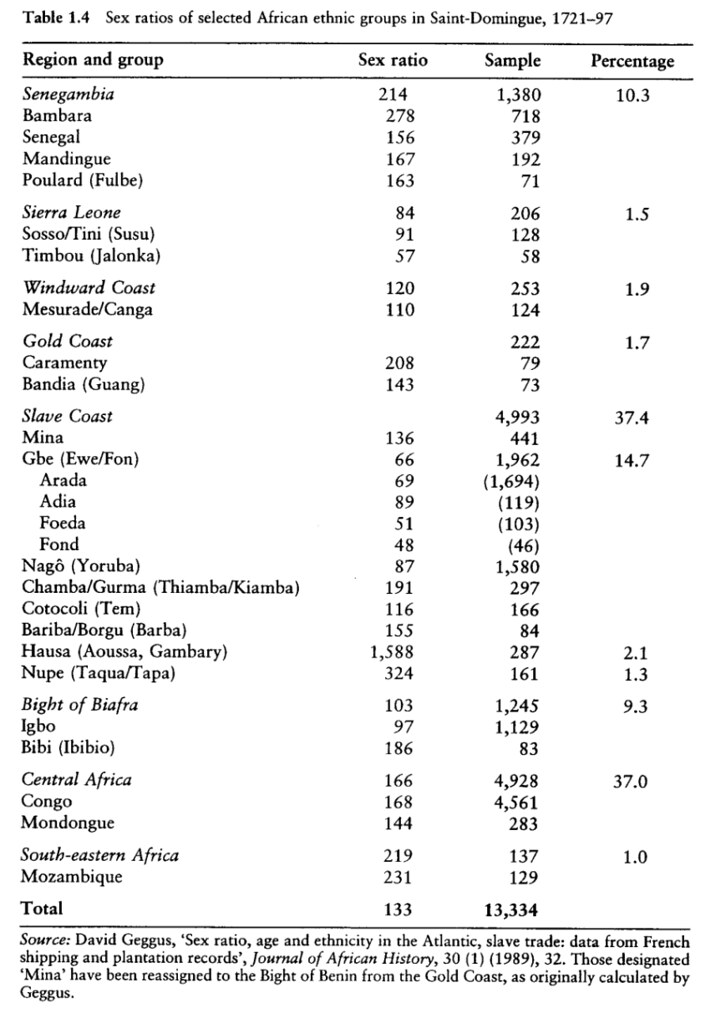 |
| Re: Slaves from The Bight of Benin Vs The Bight of Biafra- Numbers & Cultural Legacy by scholes0(m): 11:41pm On Jan 25, 2017 |
HORRORIZON: I think this is another wrong assertion, because Yoruba slaves were actually quite prominent in Bahamas. Maybe not the most numerous there, because Angola-Congo always seem to come tops for almost everywhere but they were actually recorded to be there in considerable numbers. 1 Like |
| Re: Slaves from The Bight of Benin Vs The Bight of Biafra- Numbers & Cultural Legacy by bigfrancis21: 10:48am On Jan 26, 2017 |
YonkijiSappo: From my understanding, while african ethnic groups may show some level of similarity, most tribes tend to have distinct genetic markers. For example, the chromosomal DNA of a healthy person from the east, whose ancestors have not been mixed going to at least 5 to 8 generations back, observed under microscope indicates a different pattern from a similar individual from the western part of Nigeria. DNA testing companies in the US take blood/DNA samples from people from different tribes known to have been involved in slavery, study the pattern and store these specimens in their database. When someone submits their DNA for testing, the company compares the test specimen against their database of specimens to find the closest match. The website where you most likely got the line, The only difference between both groups is that Yorubas usually have slightly more Benin-Togo than Cameroon-Congo , while Igbos usually have more Cameroon-Congo than Benin-Togo, from was trying to explain that out of the majority in each population, some people may have slightly different genes from the majority, which is normal or expected given the fact that a lot of to-and-fro migrations and inter-marriages happened in the past. We can verify this by reviewing the two AncestryDNA results shown below for persons of confirmed fully Igbo and Yoruba ancestry. As expected because of geographical proximity the Yoruba person shows a greater degree of “Benin/Togo” than the Igbo person, but for both it is very substantial. They are of course only individual results (see the very first chart for a group average calculated by myself and this graph for the samples used by Ancestry.com) but in theory any Yoruba or Igbo ancestor having a similar genetic profile could have passed on “Benin/Togo” markers to their American-born descendants. For Jamaicans the Yoruba option is likely to be more relevant than it is for African Americans because of the additional arrival of socalled “Nago” contract labourers after the Abolition of slavery. But for both i suppose at least a minor degree of socalled “Benin/Togo” could very well also have found its way in their AncestryDNA results by way of Igbo or Biafran ancestry. Yoruba showing some degree of Benin/Togo gene markers would be expected given the proximity of both regions and possible migrations and inter-marriage between both regions. Same for Igbo and neighbouring areas such as Cameroon. But there is still always a unique identifying marker that identifies each people and that is how DNA testing is able to pinpoint with high levels of accuracy one's ancestral origins to specific tribes by DNA testing. Let me clarify my earlier post on Yorubas having possible Igbo DNA in the future. In reality, DNA is never lost, especially those carried on the X and Y chromosomes. For example, we - boys and girls, get one x chromosome from our mother, who got it from her mother, who got it from her own mother...and so on...down to the very first female ancestor. With this unique occurrence of nature, one's maternal DNA origins could easily be traced to the region of the first female ancestor. Similarly, boys get the Y from their father, who got it from his father, and so on ... down to the very first male ancestor. That way, diasporan blacks by DNA testing are able to predict which region or tribe their Y chromosome came from. DNA may undergo recombination but certain genetic information is hardly ever lost. With recent inter-tribal marriages between west and eastern Nigeria, traditionally and culturally these offspring are considered Yoruba but their Igbo genetic component which makes up for one-half of them is not truly lost, even to as far as 10 generations from now. For example, a member once on this forum, mimifonwon, yoruba father igbo mother, many years ago decided to try out DNA testing for fun though knowing her origins and her results came out thus: 25% Yoruba, 65% Igbo, 10% Fula. She said she was not surprised about having a high Igbo component given that her own mother is Igbo and her father's mother was also Igbo (her paternal grandfather married an Igbo woman), and she also confirmed having a fulani/hausa ancestor somewhere down her paternal ancestry. Culturally this lady would be called Yoruba, DNA speaking she is more of Igbo than her all other ancestries combined. It's been a while I saw her active on this forum. Maybe she may respond if she gets notification of her mention. Individuals like her, Yorubas with Igbo mothers or grandmothers, are becoming common in the west and their eastern Nigerian genetic admixture is never lost. Finally, let me say that I have interest in genetics because I took a genetics class in my first year, because I had initially intended to be a doctor, and I really understand how most of it works. 1 Like |
| Re: Slaves from The Bight of Benin Vs The Bight of Biafra- Numbers & Cultural Legacy by bigfrancis21: 11:14am On Jan 26, 2017 |
I found some of her posts: mimifonwon: One interesting thing she did mention that samples taken from Ijebu-Igbo her paternal hometown came up as: Father- yoruba from ijebu-igbo= 35% igbo of subsharan africa, 55% yoruba of subsharan africa, 10% of fulani of subsharan africa. And her mother's side, Ngwa area of Abia state came up as: Mother-95% igbo of subsharan africa, 5% undetermined Which goes a long way to show the degree of ethnic mixing in both eastern and western tribes. Her father's genetic testing result also indicates the genes from Igbo women married long ago popping up in his admixture. ------------------------------------------------------------------------------------------------------------------------------------------------------------------ When asked to clarify why her father's side came up with 35% Igbo DNA, she replies: BlackPikiN: https://www.nairaland.com/mimifonwon |
| Re: Slaves from The Bight of Benin Vs The Bight of Biafra- Numbers & Cultural Legacy by bigfrancis21: 11:15am On Jan 26, 2017 |
mimifonwon: https://www.nairaland.com/935826/does-anyone-speak-straight-egba |
| Re: Slaves from The Bight of Benin Vs The Bight of Biafra- Numbers & Cultural Legacy by bigfrancis21: 11:54am On Jan 26, 2017 |
Population of Southern Nigeria as of 1921 https://books.google.com/books?id=GUc8AAAAIAAJ&pg=PA4&lpg=PA6&focus=viewport&dq=ika+igbo+bini&output=html_text cc YourNemesis Laudate Lawani Lushore 3 Likes
|
| Re: Slaves from The Bight of Benin Vs The Bight of Biafra- Numbers & Cultural Legacy by orimsamsam(m): 11:32pm On Jan 26, 2017 |
bigfrancis21:u don start again to dey use 1921 population figure to judge Present southern population 3 Likes |
| Re: Slaves from The Bight of Benin Vs The Bight of Biafra- Numbers & Cultural Legacy by MtuMsuper: 9:07am On Jan 27, 2017 |
A not so casual observation. I have once met a bajan (Barbados ) man and they tell me the igbo part of their heritage is taught in schools. I have a YouTube video somewhere, i can't find it now which tells of the story of the capture of an ancestor from igboland. Also he told me among the carribean nations, there is a stereotype about the bajans having legendary tempers, fierce personal freedoms and the love of money. Coincidence? 2 Likes |
| Re: Slaves from The Bight of Benin Vs The Bight of Biafra- Numbers & Cultural Legacy by bigfrancis21: 5:07pm On Jan 28, 2017 |
MtuMsuper: Barbados is said to have had a high concentration of Igbo slaves. In Belize town, one section of it was called eboe town for the first half of the 19th century. Former English territories generally had substantial concentration of Bight of Biafra slaves, because they traded specially with Congo, Angola and Bight of Biafra. |
| Re: Slaves from The Bight of Benin Vs The Bight of Biafra- Numbers & Cultural Legacy by bigfrancis21: 8:53am On Feb 22, 2017 |
NIGERIAN/AFRICAN ANCESTRY OF PUERTO RICANS  [img]https://tracingafricanroots.files./2015/06/cuban-slave-market-1790-1880.jpg[/img] “Puerto Rico’s Yoruba population was disproportionally small. A handful appeared in runaway notices in the 1820’s, but neither they nor any other slaves from the Lower Guinea coast were ever identified as participants in Puerto Rico’s slave revolts.” (Dorsey, 2003, p.169) “Cuba always outdistanced Puerto Rico in slave acquisitions. As a result, independent Puerto Rican access to African captibves was limited to Gallinas, Sherbro and the Pongo in Upper Guinea (which yielded Mande speakers – some Vai, but mainly Soninke, Susu, Manding and especially Gangá); the Niger delta in Lower Guinea (some Ibibio, according to records from the Temerario, but mainly Ibo, called jointly “Carabali”; and ill-defined areas on both sides of the Congo but few from Angola. Thus Cuba (and Brazil), not Puerto Rico, received large numbers of Yoruba (“Lucumi”) captives from the Bight of Benin.” (Dorsey, 2003, pp.135-136) “Santeria, also known as regla de Ocha, derived from Yoruban regligion with an overlay of Spanish Catholocism, is very strong in Puerto Rico today. According to scholars, modern Santeria was introduced into Puerto Rico by Cuban migrants during the 1940’s, 1950’s and 1960’s.” (Religions of the world: a comprehensive encyclopedia of beliefs and practices, p.2341) ” Mira que tu madre es conga, Tu padre es carabalí Tanto tiempo en Puerto Rico y no puedes hablar asi” (Bomba lyrics) ____________________ “Nigeria” was shown as the main region for the subgroup of my samples with higher African ancestry. Any attempt to find out which exact ethnic origins are being pinpointed by the various AncestryDNA regions is of course going to be speculative at this stage. Also obviously unique family trees will ensure some individual variation. But just very generalizing and based on whatever’s been documented we might already come to some preliminary conclusions. According to the Slave Voyages Database (see chart above) a far greater part of Nigerian slaves arriving in Puerto Rico would have been brought over from the Bight of Biafra (39,6%) and not the Bight of Benin (2%). This already suggests that they were mostly Igbo (“Carabali”) and not Yoruba. Slave voyages for Puerto Rico are however greatly underreported because of widespread smuggling and intercolonial trading with surrounding Caribbean islands. So any full coverage should not be expected, especially the early slave voyages to Puerto Rico during the 1500’s/1600’s are seriously underestimated in the Slave Voyages Database. Still the main patterns of Bight of Biafra predominating together with Central Africa and Sierra Leone in third place might still be valid enough atleast for the late 1700’s and 1800’s judging from additional indications. Puerto Rico’s slave suppliers were from various nationalities (Portuguese, Danish, Dutch, French). But it’s probably the English who sold the most slaves in between 1765-1808, when Puerto Rico’s sugar economy was in full expansion again after almost 2 centuries of stagnation. Looking at the main slave trade patterns of the English during the last decades before Abolition, it’s apparent that the Bight of Biafra and Central Africa were the leading places of origins of African captives in the late 1700’s. This can also be verified by the consistent prominence of people identified as “Ebo” and “Congo” in the slave registers compiled in the early 1800’s throughout the English ruled West Indies, see also this overview. But also in Cuba and to a lesser degree the Dominican Republic a similar pattern can be observed. For example the “Carabali” are shown to be three times more numerous in Cuba than the “Lucumi”, a.k.a. Yoruba, in the last chart above. We should be careful however in assuming that all people labeled as “Carabali” or Lucumi” would indeed be just Igbo or Yoruba. When applying a more detailed classification of ethnic origins for Liberated Africans in Cuba no less than 51 subgroups were mentioned for the Carabali and 29 subgroups for the Lucumi (see this excellent webpage). As a final consideration we should also keep in mind that documented references to the Yoruba in Puerto Rico are apparently rare to find. Going by the research of Dorsey (2003) it seems this can be explained by a relative absence of Puerto Rican slave trade with the Bight of Benin also continuing into the 1800’s. A search in Puerto Rico’s slave census of 1872 also doesn’t produce any matches for either “Lucumi” or “Ollu” which would be how the Yoruba would have been known as in colonial Puerto Rico. This census is available also on ancestry.com via this link. According to Dorsey (2003, p.118) the most frequent African surnames documented in Puerto Rico (derived from their “nacion”) in the late 1800’s were: Congo, Cangá, Mandinga, Carabali and Mina. Doing an online search in the 1872 slave census (which would have records on about 31.000 slaves of whom only 3000 were foreign born though), the greatest number of search results is obtained for the Cangá (32x), followed by Congo (17x), Mandinga (2x) and Carabali (3x). Finding the exact origins of African retentions in the New World isn’t always easy and sometimes the cultural exchange taking place in the post-slavery era might confuse things. For example according to the third quote above some current day practices in Puerto Rico associated with the Yoruba might actually have been recent imports via Cuba. (see also this book: Cubans in Puerto Rico: Ethnic Economy and Cultural Identity). Not all scholars are in agreement about this however. A definite answer to this question can probably only be given after more historical research as well as more refined DNA testing. Nigeria has been showing up most prominently for people of higher than average African descent. Which might imply relatively more recent origins for these lineages. However to add an intriguing twist it is also regularly reported as top region for people of minor African descent. I suppose in most cases this could also be dating from the 1700’s/1800’s. Nigerian origins from the 1500’s/1600’s are not very likely given that they formed a very small minority of the captives in that period, but still it might be possible too i suppose. As of yet it is uncertain which specific ethnic origins could be pinpointed, either Yoruba or Igbo is most likely. From recent studies it appears that the Yoruba presence in Puerto Rico might have been overestimated though. https://tracingafricanroots./puerto-rican-results/ |
| Re: Slaves from The Bight of Benin Vs The Bight of Biafra- Numbers & Cultural Legacy by eyinjuege: 9:31am On Feb 22, 2017 |
YourNemesis: Please, let's not rubbish this thread by bringing tribal sentiments to it. Many other tribes were also sadly enslaved. It's not a thing of pride or joy in African history that any tribe was taken into slavery. There is too much sadness from the aftermath of the slave trade. which went on for decades. Really educative thread. But funny enough I seem to sense some pride in being sold as slaves to the Americas. Anyway, kudos to Yournemesis and bigfrancis21. I've learnt so much from this thread, but sadly got lost along the way. Too much information and studies, it started doing my head in  My history is wack. I learnt some years back that Nigeria doesn't teach history in schools again? That will be too sad if true. |
| Re: Slaves from The Bight of Benin Vs The Bight of Biafra- Numbers & Cultural Legacy by ezeagu(m): 12:59am On Mar 15, 2017 |
YourNemesis: The Orisha thing is very surface level, it's not something that has become or has been embedded in mainland North America. There were more Yoruba slaves, but they mainly went to Latin American countries. In the English of islands like Jamaica and Barbados the Igbo language is embedded in the language so much so that grammatical structure and some pronouns are influenced or are from Igbo. Orisha in North America mainland is kind of like Judaism among Igbo people, it's a sentimental thing that doesn't really have precedence in the culture as opposed to important aspects of diasporan culture that academics look at as the cultural corpus or the main characteristics of a given area of the diaspora. It is noticeable that little to no attention is given to Orisha in the North American mainland inside academia, it's treated like wicca or any other new-age fad. Core African American culture is soul food, African American vernacular, family ties, music, etc. Nobody would claim that Orisha is part of African American culture but would rather say a minority of African Americans embrace it as a foreign religion used to connect back to Africa in some way. All this is to say that if scrutinised, Igbo/Bight of Biafra culture is more relevant to African American culture than Bight of Benin ancestry is, also to Anglo Caribbean culture. The rediscovery of the Virginia Igbo link alone in academia is outpacing any new-age African adoptions. 3 Likes |
| Re: Slaves from The Bight of Benin Vs The Bight of Biafra- Numbers & Cultural Legacy by ezeagu(m): 1:08am On Mar 15, 2017 |
These are Jamaican Jonkonnu masquerades  4 Likes |
| Re: Slaves from The Bight of Benin Vs The Bight of Biafra- Numbers & Cultural Legacy by ezeagu(m): 1:11am On Mar 15, 2017 |
YonkijiSappo: That's only because the people took markers by former colonial borders, there are markers that can tell if someone is from eastern Nigeria but that can only be done if they are singled out as such and not thrown into 'Nigeria'. 2 Likes |
| Re: Slaves from The Bight of Benin Vs The Bight of Biafra- Numbers & Cultural Legacy by ezeagu(m): 1:12am On Mar 15, 2017 |
YourNemesis: Bahamian creole has more Igbo influence than any other language, their masquerades are partly of Igbo origin. 3 Likes |
| Re: Slaves from The Bight of Benin Vs The Bight of Biafra- Numbers & Cultural Legacy by ezeagu(m): 1:18am On Mar 15, 2017 |
You know, the funny thing is that with all of this talk of this and that religion or the fading of this culture or the other, you can fund people with authentic links to African communities who are African descendants in the Americas without hassle. For example this prominent man from Belize whose statue stand at the mouth of the old Eboe Town. 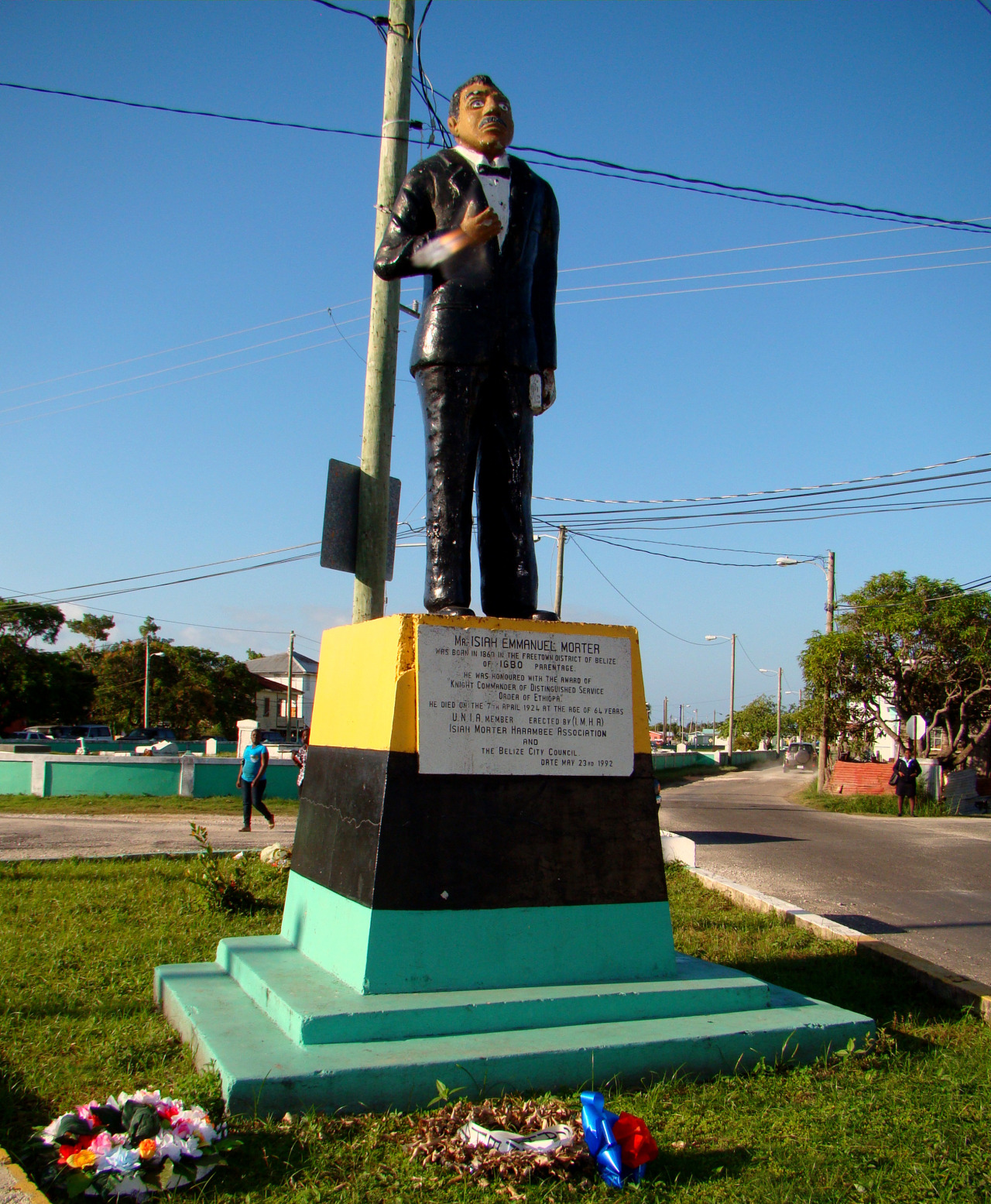 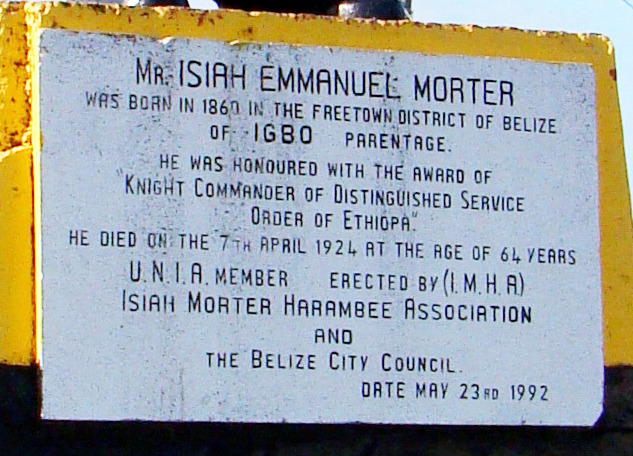 3 Likes |
| Re: Slaves from The Bight of Benin Vs The Bight of Biafra- Numbers & Cultural Legacy by ezeagu(m): 1:22am On Mar 15, 2017 |
Or the various crumbs of influence Igbo culture has had in the Antilles. 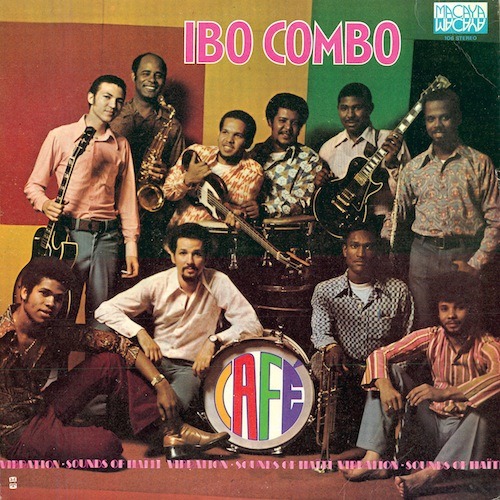 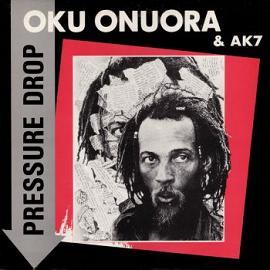 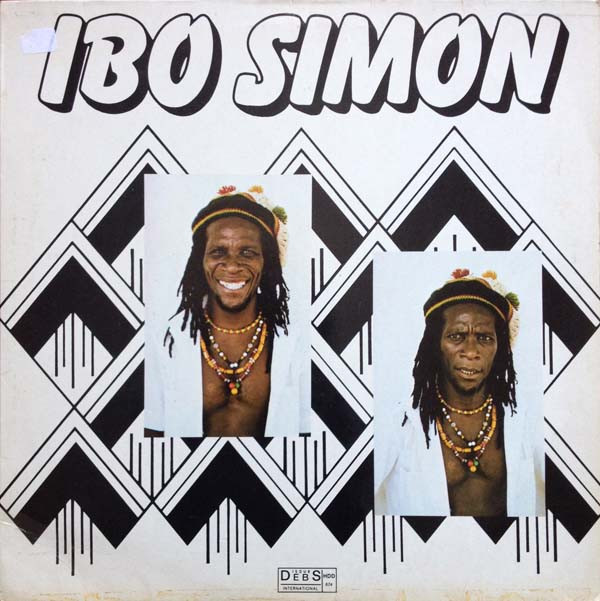 3 Likes |
| Re: Slaves from The Bight of Benin Vs The Bight of Biafra- Numbers & Cultural Legacy by YonkijiSappo: 2:46am On Mar 15, 2017 |
ezeagu: Like Jewish markers?  This is not a question of colonial borders, in fact these categories go past colonial borders, for example, most Nigerians have significant Benin/Togo ancestry. Yet they are not Nigerians, and we are not Beninese. |
| Re: Slaves from The Bight of Benin Vs The Bight of Biafra- Numbers & Cultural Legacy by Afonjas: 4:05am On Mar 15, 2017 |
Most of then Igbos were rebels and jumped into the sea, they committed suicide |
| Re: Slaves from The Bight of Benin Vs The Bight of Biafra- Numbers & Cultural Legacy by ezeagu(m): 4:12am On Mar 15, 2017 |
YonkijiSappo: Markers similar to Beninese because the markers were assumed to be based on them, just like how there's an entire one for the huge region of Cameroon/Congo. This why Hausa people get Nigeria results without Benin/Togo and Cameroon/Congo, it's random. his person explains the results in detail: https://tracingafricanroots./ancestrydna/african-results/nigerian-results/ 1 Like 1 Share |
| Re: Slaves from The Bight of Benin Vs The Bight of Biafra- Numbers & Cultural Legacy by YonkijiSappo: 4:49am On Mar 15, 2017 |
ezeagu: It isn't just "Assumed" to be a Beninese/Togolese marker for assumption sake. The marker is labelled such, because that is where its highest concentrations are found. Most people from Benin/Togo region usually show a 90%+ dominance of it in their genomic breakdown. Same for people from Ghana/CV wh usually show like 80-90+% of that particular region.... It goes without saying, Cameroon/Congo is the same. Nigerians usually seem to be the odd ones out, we have more fragmented DNA due to our complex history. Infact, it has been said that Nigerians show the lowest concentrations of a marker assigned to them in general, because Nigerians as it turns out are a very very mixed African population. The Average Nigerian may not score more than 70% Nigeria most times, and that is for a very Nigerian person. Fulanis have some Senegalese and North Africa, Igbos have some Cameroon/Congo and Benin Togo with the former being slightly more than the later. Yorubas have Benin/Togo and Cameroon/Congo in the same vein, While all sorts of Nigerians show Ghana others Mali with a sprinkling of Bantu all over. A lot of people from our neighboring regions seems to have all migrated into the geographical space of what is now Nigeria in the past, hence the lower concentrations of "Nigerian" DNA markers among Nigerians themselves. People from places right in the middle of Nigeria like Kogi and Plateau should do these tests, I am sure they would be the ones with the highest proportion of Nigerian unique markers. Personally, I won't be surprised if I take a DNA test and score less than 65% Nigerian. |
| Re: Slaves from The Bight of Benin Vs The Bight of Biafra- Numbers & Cultural Legacy by ezeagu(m): 7:05am On Mar 15, 2017 |
YonkijiSappo: No, this is where colonial borders come in, there was no distinction made in the test between a Yoruba from Benin Republic and one from Nigeria, an Ewe from Togo and one from Ghana, same for Hausa. The assumption only makes sense if there is a defined grouping in Benin and Togo which there isn;t, it's just a test for genetic similarity. Places like Liberia and Sierra Leone are not even there and are grouped with neighboring regions. Even if you go with the shared ancestry from thousands of years ago it's from out of southern Nigeria, specifically eastern Nigeria and not towards it which makes the results even more fallible because it's showing a link the Benin/Togo has with Nigeria groups rather than the reverse. The image below explains: [img]https://tracingafricanroots.files./2015/10/benintogo.jpg[/img] “Benin’s largest ethnic group is the Fon (39%), followed by the Adja (15%), Yoruba (12%) and Bariba (9%). Togo’s largest ethnic groups are the Ewe (21%), Kabye (12%), Mina (3.2%) and Kotokoli (3.2%). Benin has more ethnic ties to its neighbor Nigeria; Togo has more links to Ghana. These ethnic ties are the result of long-standing kingdoms that flourished before European colonists created new borders.” (Ancestry.com) “Many people in Togo and Benin speak one of about 20 related Gbe languages. Linguistic evidence indicates that most of the Gbe people came from the east in several migrations between the 10th and 15th centuries. The Gbe were pushed westward during a series of wars with the Yoruba people of Nigeria, then settled in Tado on the Mono River (in present-day Togo).” (Ancestry.com) 3 Likes |
| Re: Slaves from The Bight of Benin Vs The Bight of Biafra- Numbers & Cultural Legacy by bigfrancis21: 3:54pm On Mar 15, 2017 |
ezeagu: @bold...to add to this, there is a gradual general awakening going on right now among African Americans regarding their part/full Igbo ancestry. I go on several websites, Facebook or even YouTube and I see many of them proclaiming some level of Igbo ancestry compared to Yoruba. Yoruba popularity today among blacks in the new world was really made so by the survival of the religion in Brazil which spread/was imported into other countries in South America. Those who indulge in orisha do so as a connection to mama Africa or African ancestral origins, but not necessarily because they are of Yoruba ancestry. To these people, Ifa is a religion and anybody is welcome to practice it. It would be wrong to assume every black practitioner of the religion is of Yoruba ancestry. 2 Likes |
| Re: Slaves from The Bight of Benin Vs The Bight of Biafra- Numbers & Cultural Legacy by MrPresident1: 5:43pm On Mar 15, 2017 |
bigfrancis21: Igbo ancestry? What is Igbo ancestry? You are a dirt cheap liar. Tell me what is Igbo ancestry! |
(1) (2) (3) (4) (5) (6) (7) (8) (9) (Reply)
8 Reasons Why You Meet Few Hausa/Fulanis In The Uk / Masquerade Climbing Electric Pole In Kogi (Photos) / Hadiza Elegushi's Birthday: Oba Elegushi Celebrates Second Wife
(Go Up)
| Sections: politics (1) business autos (1) jobs (1) career education (1) romance computers phones travel sports fashion health religion celebs tv-movies music-radio literature webmasters programming techmarket Links: (1) (2) (3) (4) (5) (6) (7) (8) (9) (10) Nairaland - Copyright © 2005 - 2024 Oluwaseun Osewa. All rights reserved. See How To Advertise. 152 |
